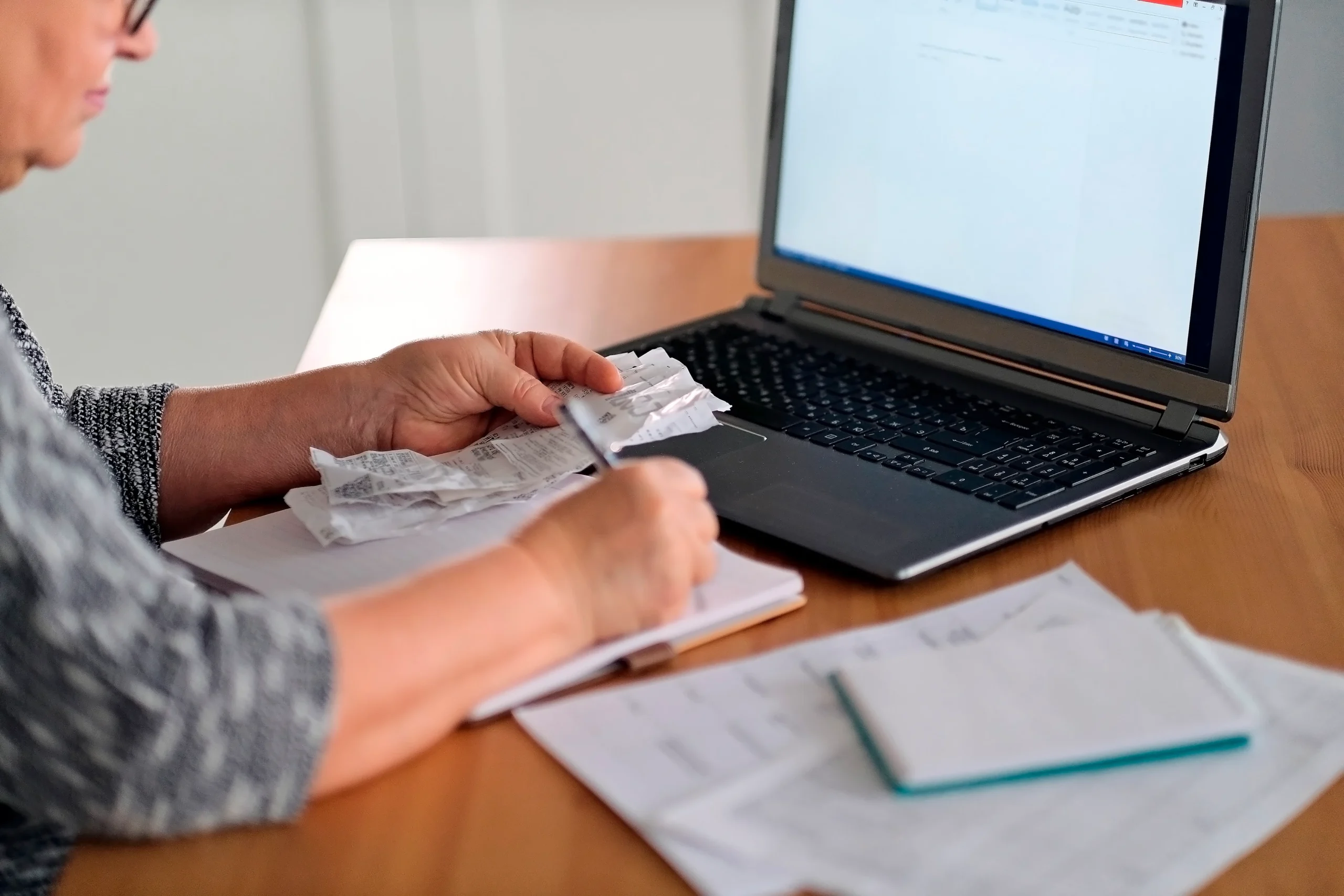Are you one of the many people who have missed the tax deadline and are now facing overdue tax returns? Don’t worry, you’re not alone. Many individuals fail to lodge their taxes on time, but it’s essential to take action as soon as possible to avoid any penalties or fines.
In this article, we’ll go over the implications of missing the tax deadline and discuss the steps you can take to lodge a late tax return. We’ll also provide information on seeking assistance from professional services and using tax software to make the process easier. Lastly, we’ll answer the question on everyone’s mind – is it possible to submit a late tax return without all documents? Keep reading for all the information you need to get current with your overdue tax returns.
Understanding your overdue tax returns
Late tax returns can have significant implications so it’s important to understand the potential fines and penalties associated with overdue returns. Getting your overdue tax returns in order will not only bring you peace of mind but also help you stay current with your taxes. Take the necessary steps to rectify the situation and ensure that you meet your tax obligations promptly.
Fines and penalties associated with late tax returns
Delaying the lodgment of your tax returns can lead to significant financial repercussions, stemming from the penalty units imposed by the Australian Taxation Office (ATO). These penalties, which can escalate over time, serve to heighten the financial burden of late returns. Furthermore, unresolved tax returns may attract further late lodgment penalties, compounding the financial implications.
Beyond the immediate financial penalties, a delay in filing your tax returns can also impact the timeliness and amount of your tax refund. Prompt action to lodge any overdue returns is vital in mitigating these penalties and safeguarding your financial well-being. Ensuring your tax affairs are in order not only helps avoid unnecessary costs but also keeps your financial records clear and up-to-date.
Steps to lodge a late tax return
To lodge a late tax return, start by determining the number of overdue tax returns you need to submit. Gather all necessary documentation such as receipts and any income statements you may have, noting most incomes from employment and investments are reported to the ATO and available in MyGov. If needed, consider seeking assistance from a registered tax agent for a smoother process. Follow the guidelines provided by the Australian Taxation Office (ATO) to ensure compliance. Be sure to submit your late tax return by the deadline, which is usually in October for late lodgers.
Determining the number of overdue tax returns
To determine the number of overdue tax returns you have simply check MyGov for any overdue lodgments. MyGov will flag any outstanding returns for specific years, including any PAYG or BAS lodgments if applicable. Or if you’re not sure, you can ask your tax agent to check for you.
Gathering necessary documentation for overdue tax returns
When preparing to lodge late tax returns, it’s crucial to gather all the necessary documentation. The first and most critical step is to ensure you have all the necessary documentation at hand. Here’s a structured approach to help you organise your paperwork effectively:
Collect expense receipts
Begin with rounding up all expense receipts for each tax year you’re filing late. Pay special attention to capital purchases related to work, such as laptops or vehicles. These documents are vital for claiming deductions accurately.
Logbooks for deductions
Maintain vehicle and home office logbooks to substantiate claims for these deductions. These records are key to maximising your return.
Review previous tax returns
Refer to your last submitted tax return to identify any depreciating assets that need to be accounted for in the current filings.
Compile additional documents
Gather all relevant paperwork, including donation receipts, loan statements, and receipts for self-education expenses and any related travel costs.
Property investors
For those with rental properties, ensure you have rental income statements, loan documents, and records of expenses not covered by property management. Additionally, for recent purchases, settlement statements and loan documents are necessary to identify borrowing costs and adjustments, alongside a depreciation schedule for the property.
Sole traders
If you’re self-employed and not utilising digital accounting software, your bank statements will be indispensable for tracking income and expenses.
Before you proceed to lodge your tax returns, take the time to verify the accuracy and completeness of all collected documents. Ensuring your documentation is thorough and up-to-date is crucial for a smooth lodgment process. Additionally, keeping detailed worksheets or records to backup your calculations and claims is essential, especially if you’re lodging the returns yourself. This preparatory work not only aids in filing your returns more efficiently but also positions you well in case of future audits.

Seeking assistance for overdue tax returns
Dealing with overdue tax returns doesn’t have to be a daunting task. Enlisting the help of a tax professional can be a strategic move to efficiently bring your tax filings up to date. Tax agents, especially those with expertise in handling late returns, offer invaluable guidance on maximising deductions, understanding your entitlements, and meeting the ATO’s lodging requirements. They can also negotiate on your behalf for the remission of interest or penalties that may have accrued.
Additionally, a little preparation goes a long way. The more organised you are with your documentation, the more straightforward the process will be, potentially reducing the cost of accounting services. Remember, leveraging professional help is about making a smart choice for your financial well-being and peace of mind.
How to deal with the ATO when you have overdue tax returns
If you don’t have a tax agent and find yourself in a situation where you have overdue tax returns, it is important to understand the consequences of not filing them on time. This includes potential penalties and interest charges. To address this issue, the first step is to contact the Australian Taxation Office (ATO) as soon as possible. Discuss your situation with them and gather all the necessary documentation and information to lodge your overdue tax returns. Consider seeking professional help from an accountant or tax agent who can guide you through the remission process. Lastly, it is crucial to develop a plan to stay current with your future tax returns to avoid any further issues with the ATO.
Is it possible to submit a late tax return without all documents?
Yes, it’s feasible to lodge a late tax return even if you’re missing some documents, though it’s far from the ideal route. Undertaking this path should be a last resort, primarily if the missing pieces are beyond your retrieval efforts. While the ATO can supply certain missing income documents, and bank statements might serve as stand-ins for expense records, this approach carries risks. Inaccuracies can creep in, potentially leading to penalties. It’s always best to strive for completeness and accuracy when lodging returns to avoid complications.
What to do if you missed the deadline again?
If you missed the tax deadline again, it’s important to act quickly. Lodge your overdue tax returns as soon as possible to minimise penalties and interest. Contact the ATO or a tax professional for guidance on how to proceed. Consider setting up a payment plan if you can’t pay all at once. Prevent future missed deadlines by setting reminders or hiring a tax professional.
Using tax software
Tax software emerges as a beacon of hope for navigating the treacherous waters of overdue tax returns. Crafted with the precision to tackle back taxes, these digital allies guide you step-by-step through the preparation of income, expenses, and all necessary worksheets and tax reports required for submission. They boast intelligent tax calculations designed to streamline the process, enhancing both efficiency and accuracy to ensure your returns are complete and correct.
However, it’s vital to remember that penalties and interest for late submissions are unavoidable companions to delayed returns, underscoring the importance of prompt lodging. To maximise your chances of a smooth tax experience, consider pairing the prowess of tax software like TaxTank with the expertise of professional services, such as TaxTank Accountants. This dynamic duo can offer you unparalleled support and the peace of mind that comes from knowing your tax affairs are in competent hands.
Frequently Asked Questions
What are the consequences of filing tax returns late?
Filing tax returns late can result in penalties and interest charges, increasing the amount you owe. It can also negatively impact your credit score and ability to obtain loans. In some cases, the government may take legal action against you for failing to lodge on time.
How far back can I lodge overdue tax returns?
You can typically lodge all of your overdue tax returns. It’s crucial to lodge as soon as possible to avoid penalties and interest charges. If you’re missing important paperwork, reach out to the ATO for assistance. Consider hiring a tax professional for guidance with filing and any potential complications.
What should I do if I am unable to pay my overdue tax returns?
When confronted with the challenge of unpaid overdue taxes, taking immediate action is crucial. Initiating contact with the Australian Taxation Office (ATO) or your tax agent should be your first step. They can help you understand the possible solutions, such as arranging a payment plan that allows for manageable instalments or exploring alternative resolutions.
Procrastination or neglect can significantly worsen the situation through escalating penalties and accruing interest charges. If the path forward seems unclear, don’t hesitate to seek the expertise of a tax professional who can offer guidance tailored to your specific circumstances.
Overdue Tax Returns: Penalties and Interest Explained
Submitting your tax returns late can indeed lead to penalties and interest charges, which can add a substantial burden to your tax liabilities. The ATO imposes a Failure to Lodge (FTL) on time penalty, which is typically calculated at the rate of one penalty unit for each period of 28 days that the return is overdue, up to a maximum of five penalty units. As of the last update, each penalty unit is valued at $222, making it crucial to address overdue returns promptly to avoid these financial penalties.
Additionally, the General Interest Charge (GIC) is applied to any unpaid tax amounts and accumulated penalties, further increasing the amount owed. The GIC is calculated daily and compounded, underscoring the importance of lodging overdue tax returns as soon as possible to halt the growth of these charges.
Final Thoughts
In conclusion, getting your overdue tax returns in order is essential to avoid the negative consequences of missing the tax deadline. Fines and penalties can add up quickly, so it’s crucial to take action as soon as possible. Determine the number of overdue tax returns you have and gather all the necessary documentation to complete them accurately.
If you feel overwhelmed or unsure about the process, seeking professional assistance can help you navigate through the complexities and ensure compliance. Remember, it’s possible to submit a late tax return even if you don’t have all the documents, but it’s important to make every effort to obtain them. To simplify the process, consider using tax software like TaxTank to get you up to date and on the road to better tax management.





